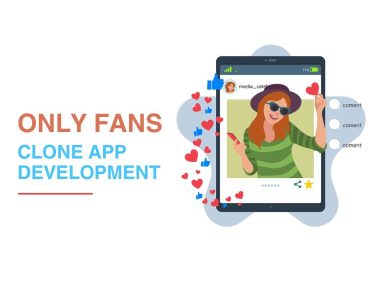In the dynamic world of digital marketing, social media has emerged as a powerful platform for brands to connect with their audiences. However, merely having a presence on social media is no longer sufficient. To truly harness the potential of these platforms, businesses need to leverage data analytics. This article delves into the importance of data analytics in shaping social media campaigns, highlighting how it can drive strategic decisions, optimize engagement, and ultimately lead to measurable success.
Understanding Data Analytics in Social Media
Data analytics involves the process of examining raw data to draw meaningful insights and trends. In the context of social media, it encompasses the analysis of various metrics such as likes, shares, comments, and follower growth. These metrics provide valuable information about audience behavior, preferences, and engagement patterns.
By utilizing data analytics, businesses can move beyond guesswork and make informed decisions. It allows marketers to understand what content resonates with their audience, which platforms yield the best results, and what strategies need adjustment. This data-driven approach is essential for crafting effective social media campaigns.
Enhancing Audience Targeting
One of the primary benefits of data analytics in social media is its ability to enhance audience targeting. Social media platforms offer a treasure trove of data about user demographics, interests, and behaviors. By analyzing this data, businesses can create detailed audience profiles and segment their audience into specific groups.
For instance, a brand selling fitness products can use data analytics to identify users who are health-conscious, regularly engage with fitness content, and fall within a certain age range. This precise targeting ensures that marketing efforts are directed towards individuals who are more likely to be interested in the brand’s offerings, thereby increasing the chances of conversion.
Optimizing Content Strategy
Content is the cornerstone of any successful social media campaign. However, creating content that consistently engages and resonates with the audience can be challenging. This is where data analytics comes into play. By analyzing past performance data, businesses can identify which types of content perform best and tailor their content strategy accordingly.
For example, if data reveals that video content generates higher engagement compared to static images, a brand can focus on producing more video content. Additionally, data analytics can help determine the optimal posting times, allowing businesses to reach their audience when they are most active. This level of precision ensures that content is not only relevant but also reaches the right audience at the right time.

Measuring Campaign Effectiveness
One of the significant advantages of data analytics in social media campaigns is the ability to measure effectiveness. Traditional marketing methods often struggle with quantifying results, but social media analytics provide concrete data that can be analyzed to gauge campaign performance.
Key performance indicators (KPIs) such as reach, engagement rate, click-through rate, and conversion rate offer insights into how well a campaign is performing. By regularly monitoring these metrics, businesses can identify what is working and what needs improvement. This iterative process allows for continuous optimization, ensuring that campaigns become more effective over time.
Personalizing User Experience
In today’s digital age, personalization is key to capturing and retaining audience attention. Data analytics enables businesses to create personalized experiences for their audience by delivering content that is tailored to individual preferences and behaviors.
For example, an e-commerce brand can use data analytics to track user interactions on social media and recommend products based on their browsing history. Similarly, personalized email campaigns can be crafted based on user engagement data, increasing the likelihood of conversion. This level of personalization not only enhances user experience but also fosters a deeper connection between the brand and its audience.
Predicting Trends and Staying Ahead
The social media landscape is constantly evolving, with new trends and technologies emerging regularly. Staying ahead of these trends is crucial for maintaining a competitive edge. Data analytics can help businesses predict trends by analyzing patterns and identifying emerging topics.
For instance, by monitoring social media conversations and sentiment analysis, brands can identify shifts in consumer preferences and adapt their strategies accordingly. This proactive approach ensures that businesses remain relevant and can capitalize on new opportunities as they arise.
Improving ROI
Ultimately, the goal of any social media campaign is to achieve a positive return on investment (ROI). Data analytics plays a pivotal role in maximizing ROI by providing insights that drive efficient resource allocation and strategy optimization.
By analyzing data, businesses can identify high-performing campaigns and allocate more resources to them, while minimizing investment in underperforming ones. Additionally, data analytics can uncover cost-effective advertising opportunities, allowing businesses to reach a larger audience without exceeding their budget. This data-driven approach ensures that every dollar spent on social media marketing delivers tangible results.
Overcoming Challenges with Data Analytics
While the benefits of data analytics in social media campaigns are undeniable, it is essential to acknowledge the challenges that come with it. One of the primary challenges is the sheer volume of data generated on social media platforms. Sifting through this data to extract meaningful insights requires sophisticated tools and expertise.
Moreover, data privacy concerns and regulations such as GDPR pose challenges in collecting and analyzing user data. Businesses must ensure that they comply with these regulations while leveraging data analytics to avoid legal repercussions.
Conclusion
In conclusion, data analytics is a game-changer in shaping social media campaigns. It empowers businesses to make informed decisions, enhance audience targeting, optimize content strategies, measure campaign effectiveness, personalize user experiences, predict trends, and improve ROI. By embracing data analytics, businesses can unlock the full potential of social media and achieve measurable success in their marketing efforts.
As the digital landscape continues to evolve, the role of data analytics in social media campaigns will only become more critical. Businesses that invest in data-driven strategies will be better equipped to navigate the complexities of social media marketing and stay ahead of the competition. In a world where data is the new currency, leveraging data analytics is not just an option; it is a necessity for any brand looking to thrive in the digital age.




